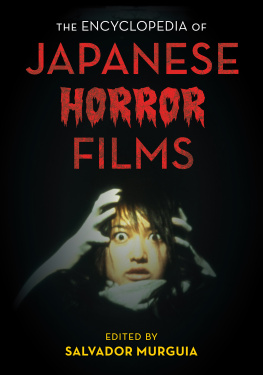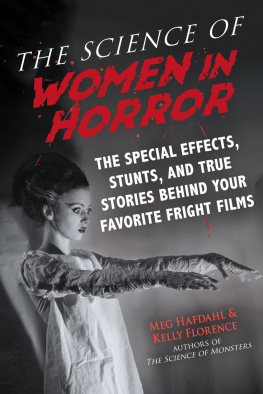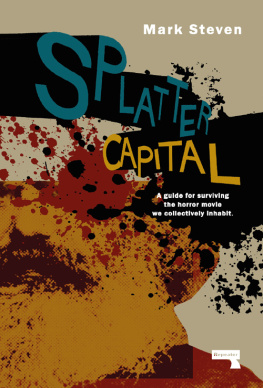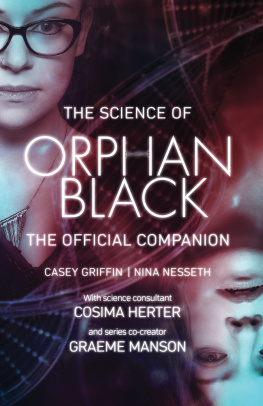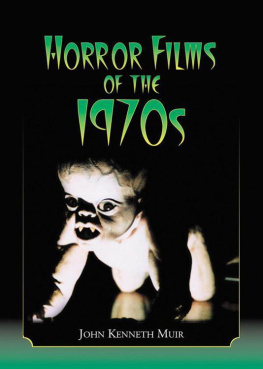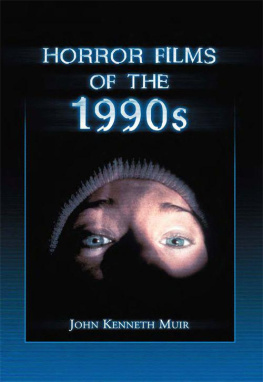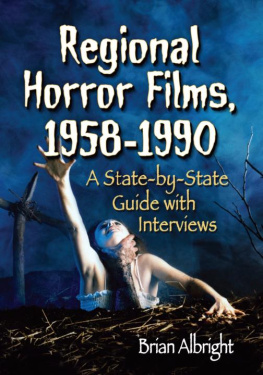Nina Nesseth - Nightmare Fuel: The Science of Horror Films
Here you can read online Nina Nesseth - Nightmare Fuel: The Science of Horror Films full text of the book (entire story) in english for free. Download pdf and epub, get meaning, cover and reviews about this ebook. year: 2022, publisher: Tom Doherty, genre: Romance novel. Description of the work, (preface) as well as reviews are available. Best literature library LitArk.com created for fans of good reading and offers a wide selection of genres:
Romance novel
Science fiction
Adventure
Detective
Science
History
Home and family
Prose
Art
Politics
Computer
Non-fiction
Religion
Business
Children
Humor
Choose a favorite category and find really read worthwhile books. Enjoy immersion in the world of imagination, feel the emotions of the characters or learn something new for yourself, make an fascinating discovery.

- Book:Nightmare Fuel: The Science of Horror Films
- Author:
- Publisher:Tom Doherty
- Genre:
- Year:2022
- Rating:5 / 5
- Favourites:Add to favourites
- Your mark:
- 100
- 1
- 2
- 3
- 4
- 5
Nightmare Fuel: The Science of Horror Films: summary, description and annotation
We offer to read an annotation, description, summary or preface (depends on what the author of the book "Nightmare Fuel: The Science of Horror Films" wrote himself). If you haven't found the necessary information about the book — write in the comments, we will try to find it.
Nightmare Fuel: The Science of Horror Films — read online for free the complete book (whole text) full work
Below is the text of the book, divided by pages. System saving the place of the last page read, allows you to conveniently read the book "Nightmare Fuel: The Science of Horror Films" online for free, without having to search again every time where you left off. Put a bookmark, and you can go to the page where you finished reading at any time.
Font size:
Interval:
Bookmark:
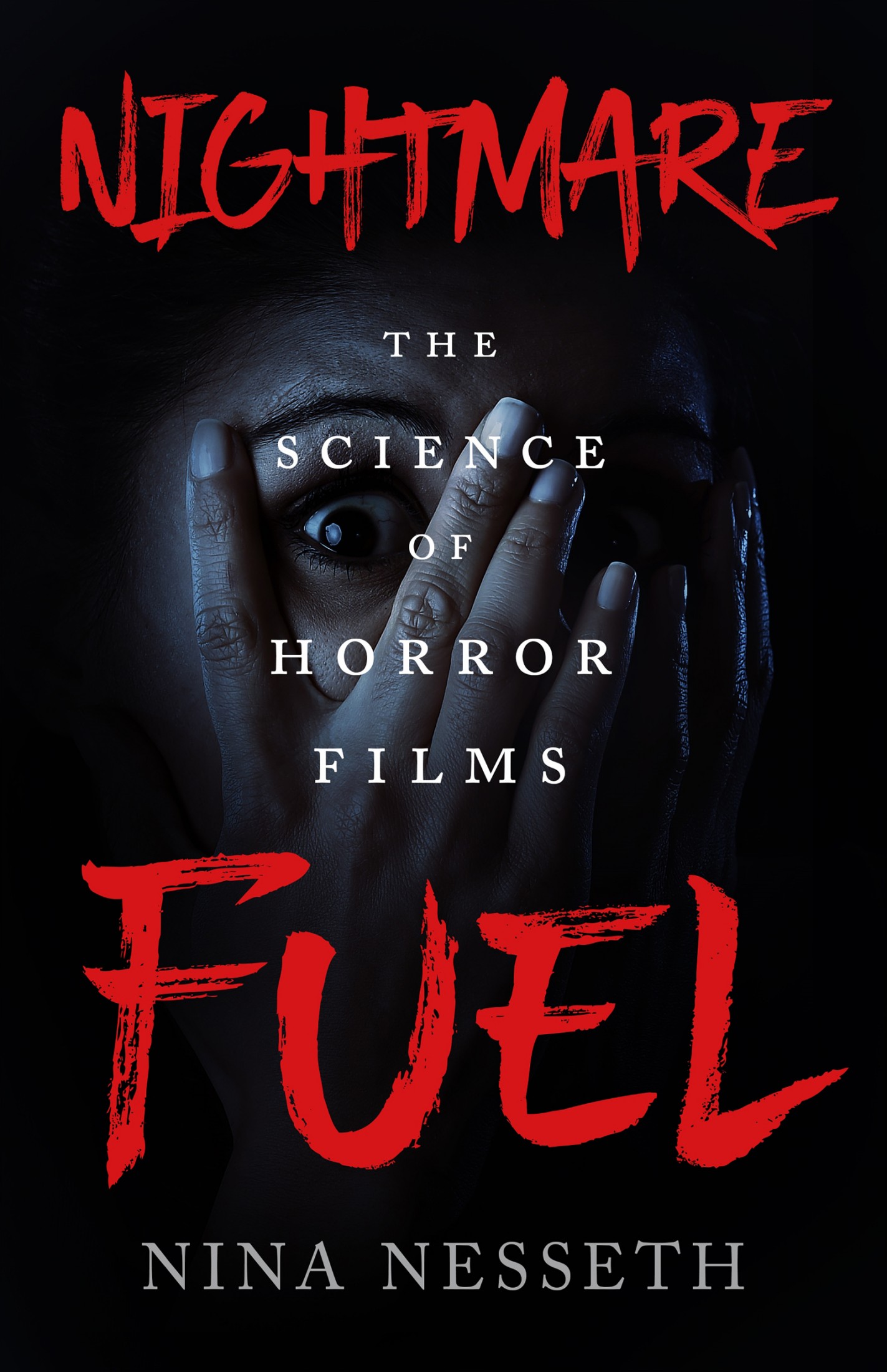

The author and publisher have provided this e-book to you without Digital Rights Management software (DRM) applied so that you can enjoy reading it on your personal devices. This e-book is for your personal use only. You may not print or post this e-book, or make this e-book publicly available in any way. You may not copy, reproduce, or upload this e-book, other than to read it on one of your personal devices.
Copyright infringement is against the law. If you believe the copy of this e-book you are reading infringes on the authors copyright, please notify the publisher at: us.macmillanusa.com/piracy.
Do you like scary movies?
Thats what the voice says on the other end of the line in the iconic opening of Scream (1996, dir. Wes Craven). What would your answer have been? I would have said yes. Chances are, you picked up this book because youd say yes too. Hopefully, you are also practical enough to lock your doors before finding yourself in Caseys (Drew Barrymore) situation, where a killer can just let themselves in without you noticing.
How did you feel the first time you watched that scene? Were you frustrated that Casey whiffed an easy piece of horror trivia? Confident that you would have gotten it right had you been in her shoes? Were you shocked that easily the most famous person on the movie poster was dead before the title card?
Were you scared?
If you felt any of those feelings, rest assured that youre not the only one. Its by design that you felt exactly the way you did.
Think about the last horror movie that you watched in theatres. Was it scary? Its interesting, isnt it, that whenever someone hears that youve seen a scary movie, their first question isnt Was it good? Instead, its Was it scary?
The long history of horror movies proves that people like to be scared for entertainment (only further reinforced by the success of haunts and horror video games). A good chunk of people who claim to be horror-averse more likely just hate one style or type of horror. In my experience, all it takes is a conversation to reveal that someone who says they hate horror really means that they hate monster movies, but they actually love the entire Final Destination franchise. Or they hate splatter, gore, and body horror, but love a good haunted house or possession story. Horror is a genre as broad as the range of human fears, and it takes as many shapes. In the same way, horror fans come in many forms, from all-around aficionados to adoring fans of a single scary flavor. What binds us all is our love of the scare.
Horror films have been around since the beginning of cinema and have a firm toehold in theatres today. With directors who are often forced to shoot around tiny budgets, horror has been a source of creative filmmakinginfluencing practical and digital special effects, camera techniques, sound, editing, and narrative storytellingacross all genres. Despite this lush history, the horror genre is often dismissed as trash. And if a horror movie does break into the right critical circles and win awards, it is suddenly distanced from the genre. Thats what happened with Jaws (1977, dir. Steven Spielberg) and The Silence of the Lambs (1991, dir. Jonathan Demme). Even The Exorcist (1976, dir. William Friedkin), oft called the best horror film of all time, was never meant to be a horror film, according to its director. Is a little polishing all it really takes to relabel would-be horrors as prestige dramas? I could never wrap my brain around the inflexible thinking that (usually non-horror) filmmakers and critics grant to horror, as if it werent the genre that is most likely to break its own rules.
Not that we genre fans are much better when it comes to putting horror into boxes.
Lets get real with each other: horror fans are notoriously picky about what gets to qualify as horror. Many people agree that 1960 was a great year for horror, with the introduction of classics such as Black Sunday (dir. Mario Bava), Peeping Tom (dir. Michael Powell), and of course, Hitchcocks Psycho. But even given its undeniable influence on the genre, there are some who dont think Psycho merits a space in the horror category because Norman Bates, despite his monstrous actions, does not fit some critics definitions of what makes a monster because he isnt supernatural in any way. (Nol Carroll, for instance, requires his monsters to be in violation of the natural order as determined by contemporary science. By this definition, if we strip away movie context, Norman Bates doesnt have the right traits to make him a monsterbut Superman does.) And theres recently been an uptick in what some are calling elevated horror, whose bigger budgets and broader critical appeal make us question the borders of the genre. These films, such as Get Out (2017, dir. Jordan Peele), Hereditary (2018, dir. Ari Aster), It Follows (2014, dir. David Robert Mitchell), and The Witch (2015, dir. Robert Eggers), bring scares while appealing to highbrow sensibilities in their execution. Do they have any more merit as horror than budget scares? Not necessarily. I like to think of them as yet another shape that the horror film can take.
Do slashers fit your personal definition of horror? How about horror sci-fi? Or psychological thrillers? Does a movie need to have just a few horror elements to qualify, or does it have to tick every box on a trope checklist?
I get it, I really do: horror is a sprawling genre, with a sometimes-overwhelming number of subgenres. Drawing lines feels personal. I get it, but I wont gatekeep. You might see some examples in this book that you dont personally consider horror, but maybe someone else does. Ive chosen horror moments that I think are great and that illustrate an argument.
That said, I think there are some essential facts of horror that we can all agree upon. Horror is often defined by its intent to scare, or, at the barest minimum, make audiences uncomfortable. But, more so than any other film genre, it is special in that it promises to deliver on that emotional response. It promises to make you feel fear, and a horror movies success hinges on the delivery of that promise. Sure, some dramas aim to make you feel sad or inspired, and comedies are hoping to tickle your funny bone, but you can still enjoy dramas that dont make you cry and comedies where some of the jokes dont quite hit your personal brand of humor. But you wont hear many people leaving a theatre saying, Wow those scares didnt land, but it sure was a great movie! If a horror movie isnt scary, then whats the point?
The truth is that so much orchestration goes into those scares. Horror taps into its audiences psychology and biology, and it uses these systems to inform the moments that give us the creeps. In return, as an audience, we collaborate with horror films to create tension and build our own fear. Horror demands that we are complicit. And our complicity, our participation with horror as a genre, has built up in us very specific expectations of what were going to see when we sit down to watch a horror film.
John Carpenter nailed it when he said, Thats what people want to see. They want to see the same movie again. In this case he was talking about sequels, but I think the sentiment translates well to the entire genre. Andrew Britton describes this phenomenon in more elaborate terms with reference to the Linda Blairled slasher
Font size:
Interval:
Bookmark:
Similar books «Nightmare Fuel: The Science of Horror Films»
Look at similar books to Nightmare Fuel: The Science of Horror Films. We have selected literature similar in name and meaning in the hope of providing readers with more options to find new, interesting, not yet read works.
Discussion, reviews of the book Nightmare Fuel: The Science of Horror Films and just readers' own opinions. Leave your comments, write what you think about the work, its meaning or the main characters. Specify what exactly you liked and what you didn't like, and why you think so.

